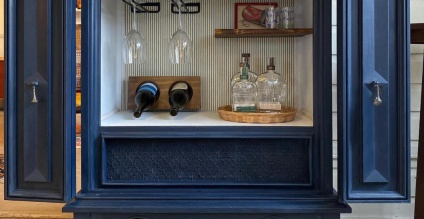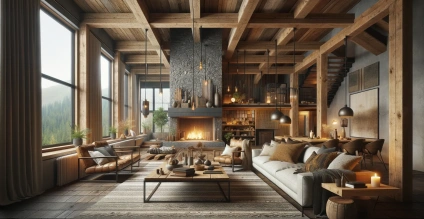Are All Paint Brushes The Same?
Different Brush Types and Their Uses:
When it comes to achieving a flawless paint finish — whether you're transforming your kitchen cabinets, updating a tired set of drawers, or refreshing your living room walls — the brush you choose matters just as much as the paint. Different brush types are designed for different tasks, surfaces, and finishes.
In this guide, we’ll break down the most essential paintbrush types, their ideal uses, and how to pick the right one for your next decorating project. Let’s take the guesswork out of your toolkit and start out different brush types and Their uses guide!

1. Flat Brush
Best For: Walls, large flat surfaces, and cutting in
A flat brush — sometimes called a “wall brush” — is a versatile go-to for most DIY decorators. With straight, square bristles, it holds a good amount of paint and offers smooth, even coverage on broad surfaces.
Ideal For:
- Painting large areas like walls or ceilings
- Cutting in along edges and corners
- Applying water-based paints and emulsions
Pro Tip: Go for a synthetic bristle flat brush when using water-based paints for a cleaner finish with fewer brush marks.
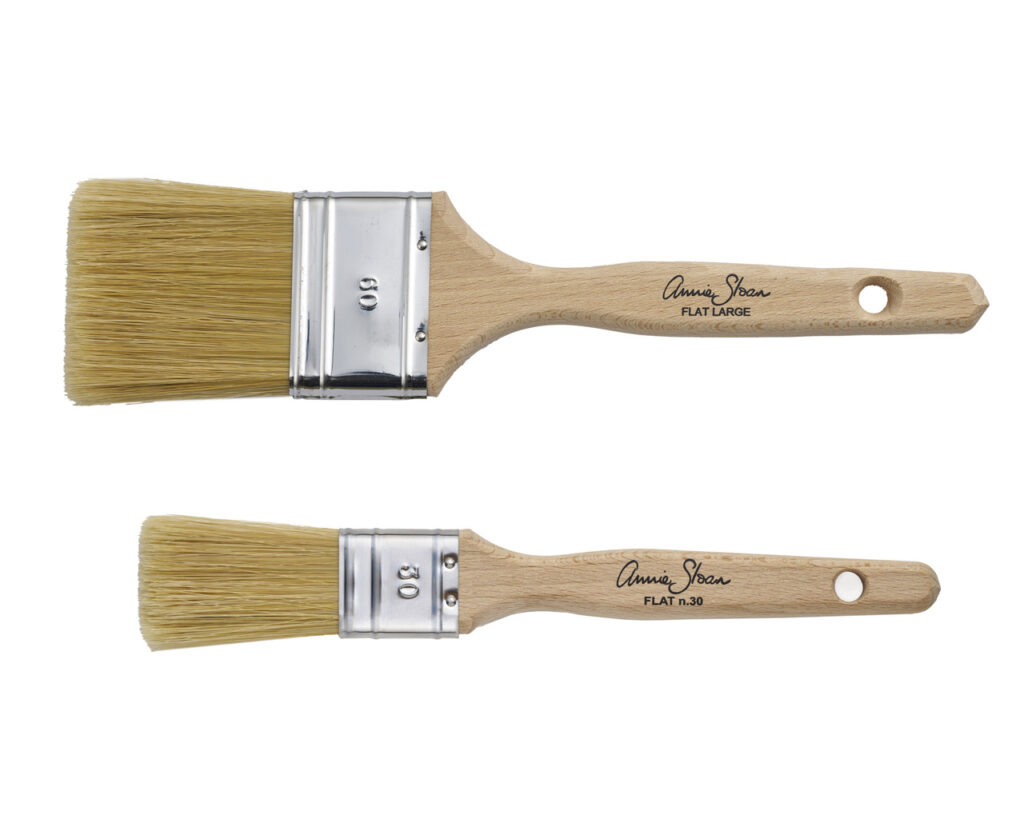
2. Angled Brush (Cutting-In Brush)
Best For: Trim, corners, edges, and detailed areas
Angled brushes (also called sash brushes) have slanted bristles that give you more control in tight or tricky spots. They’re perfect for cutting in around skirting boards, light switches, and window frames without masking tape.
Ideal For:
- Cutting in clean lines along ceilings and edges
- Painting skirting boards and door frames
- Applying paint around fixtures and corners

3. Round Brush
Best For: Furniture painting and curved details
Round brushes are ideal for decorative or curved surfaces, like turned legs on furniture or carved moulding. They’re also a favourite among upcyclers using chalk or mineral paints, as the shape helps push paint into grooves and textures.
Ideal For:
- Painting furniture with detail
- Working into mouldings or crevices
- Applying chalk, mineral or milk paint
Bonus Use: Some round brushes are specially designed for wax application during furniture restoration.
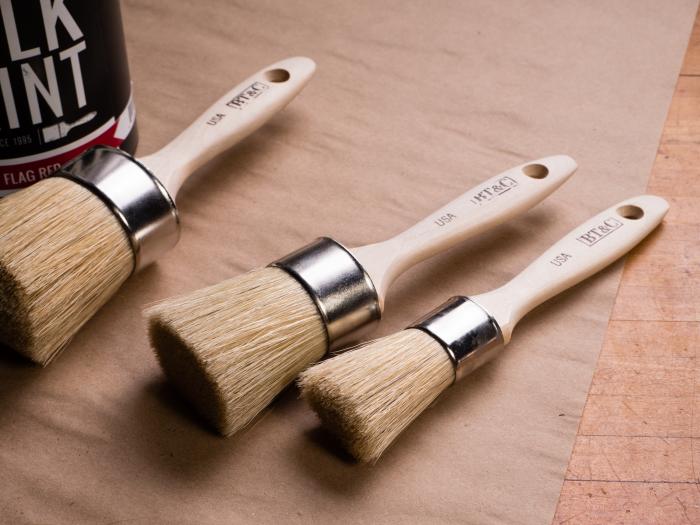
4. Detail or Artist’s Brush
Best For: Touch-ups and very fine work
These small, fine-bristle brushes might resemble art tools — and that’s exactly why they’re great for precision work. Keep a few on hand for touching up edges, corners, and any area where a larger brush feels clumsy.
Ideal For:
- Tight spots around hinges, handles, or grout lines
- Correcting paint bleeds or smudges
- Decorative paint effects or stencilling
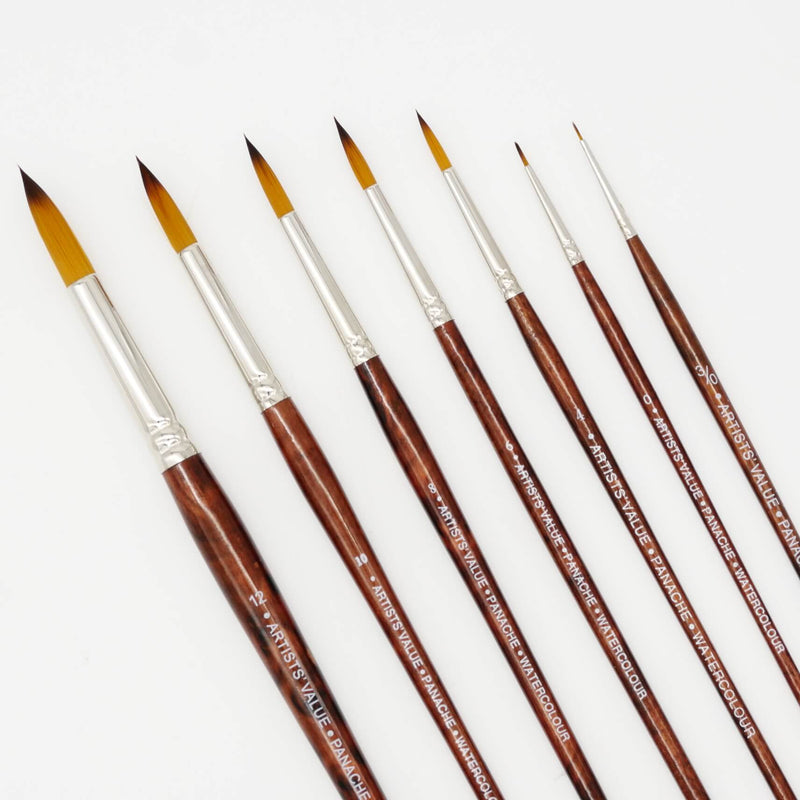
5. Stiff-Bristled Brush
Best For: Exterior wood, textured walls, and masonry
These brushes have thick, durable bristles and are designed to hold heavier paints — such as masonry paint or weatherproofing treatments. They’re great for getting into brick textures or grainy wood.
Ideal For:
- Outdoor sheds, fences, or decking
- Brick or stonework
- Applying stains or oil-based treatments
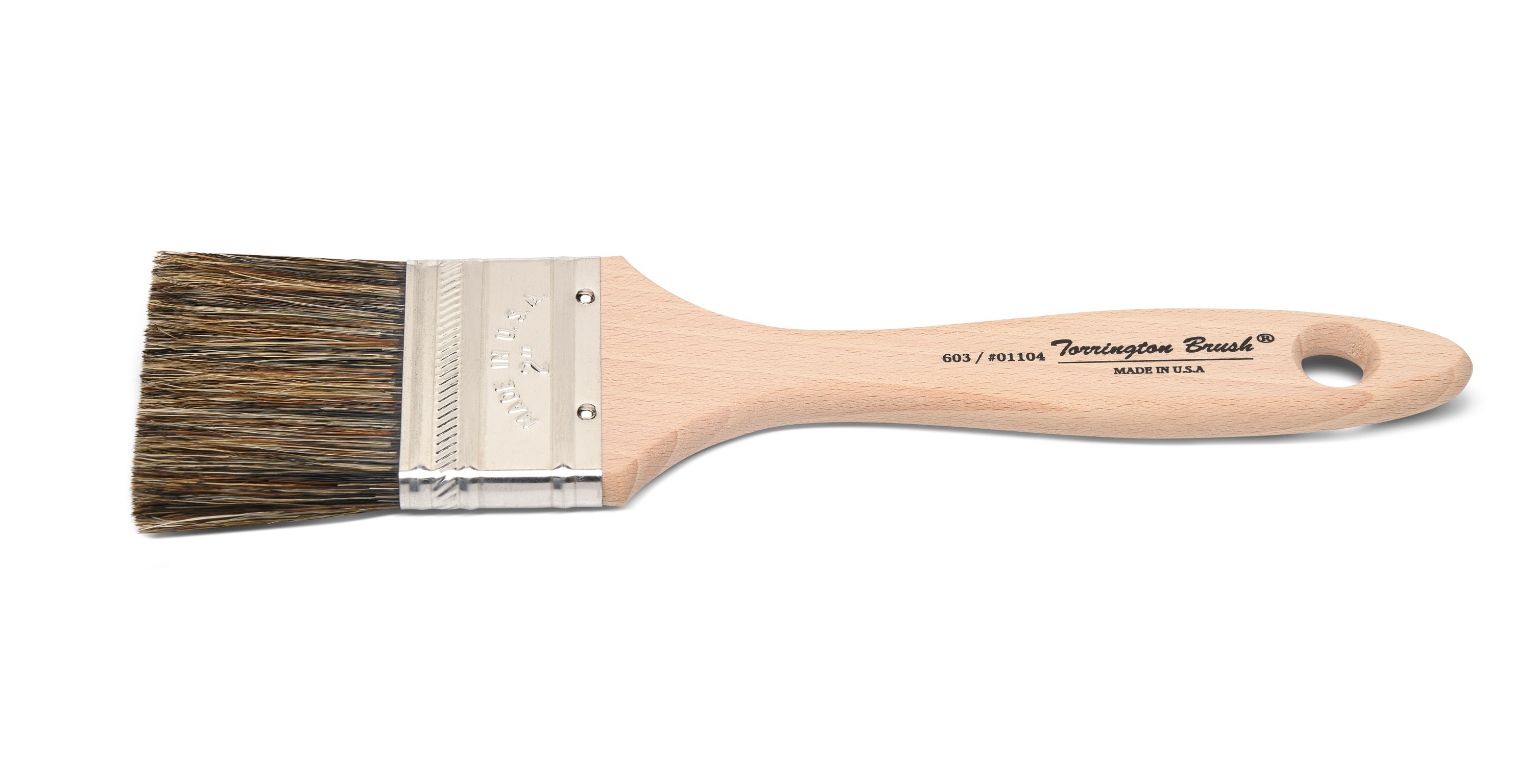
Brush Material Matters: Natural vs. Synthetic Bristles
-
Synthetic bristles (nylon/polyester): Ideal for water-based paints. They resist water absorption and hold their shape well.
-
Natural bristles (hog hair, for example): Better for oil-based paints, stains, or varnishes — they hold more product and give a smooth finish.
Tip: If you're using chalk or mineral paints, many brands recommend synthetic brushes designed for those formulas — available right here at ColourSupplies!
Don’t Forget: Brush Care = Long Life
A good brush can last years if you care for it properly:
-
Clean immediately after use (warm water for water-based paints; solvent for oil-based).
-
Reshape the bristles before drying.
-
Store in a dust-free place, ideally hanging or flat.
And with that, we close out our Different Brush Types and Their Uses!
Different Brush Types and Their Uses: Find the Right Brush for Your Project at ColourSupplies
At Colour Supplies, we stock a wide range of professional-quality brushes for all decorating needs — from budget-friendly sets for one-off jobs to premium options built to last.
Whether you’re tackling a full room refresh or giving a beloved chair a new lease on life, having the right brush in hand makes all the difference.
🛍️ Explore our full brush collection here or visit your local store for expert advice!
Related Articles
A guide to choosing the right paint brush
With so many types of paint brush available it can be difficult to know which is the right one to choose for your project. This simple guide will help you to know what the differences are and why one will suit your needs better than another.
Creating a Cohesive Look: Mixing Modern & Rustic Furniture at Home
Designing your home should reflect your personality—and for many of us, that means not being limited to just one style. More and more homeowners are embracing the charm of mixing modern and rustic elements to create a space that feels fresh, grounded, and uniquely theirs. At Colour Supplies, we believe you shouldn’t have to choose between sleek minimalism and the warmth of country living. Here’s how to bring both together in a way that feels stylish, intentional, and totally cohesive.





